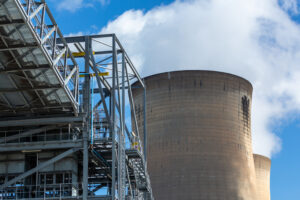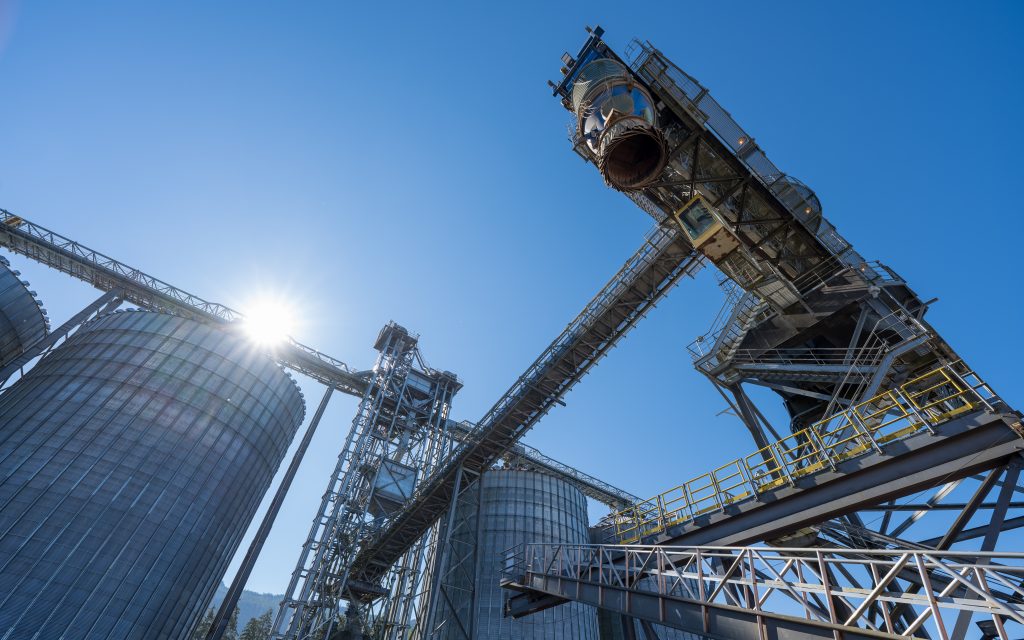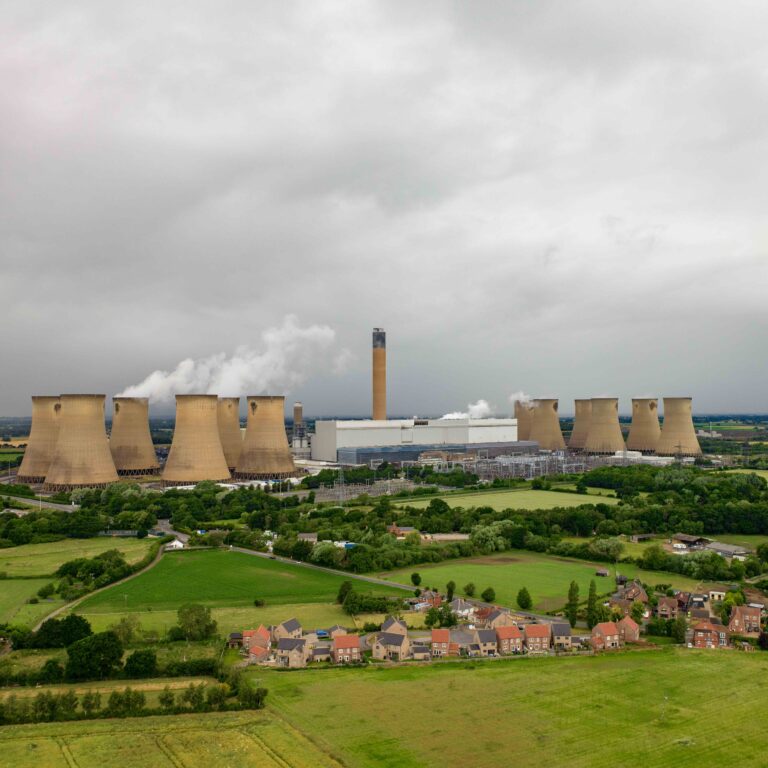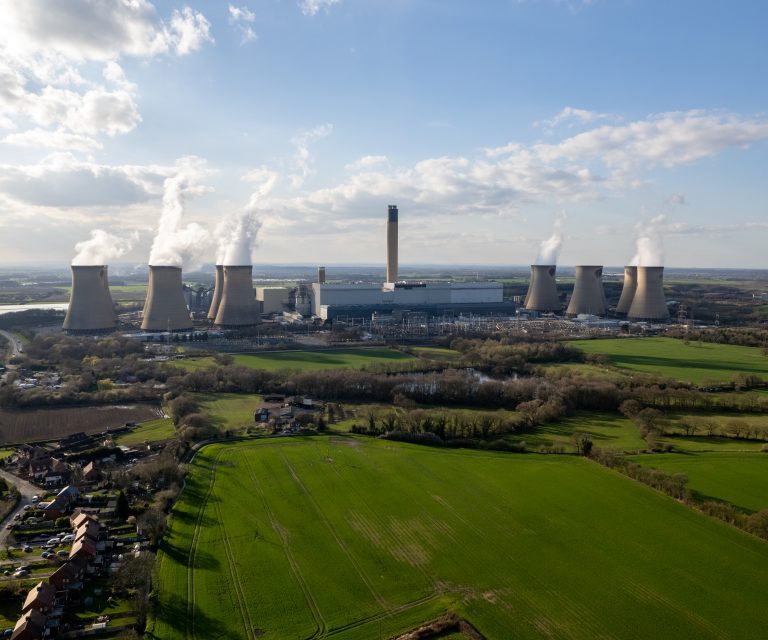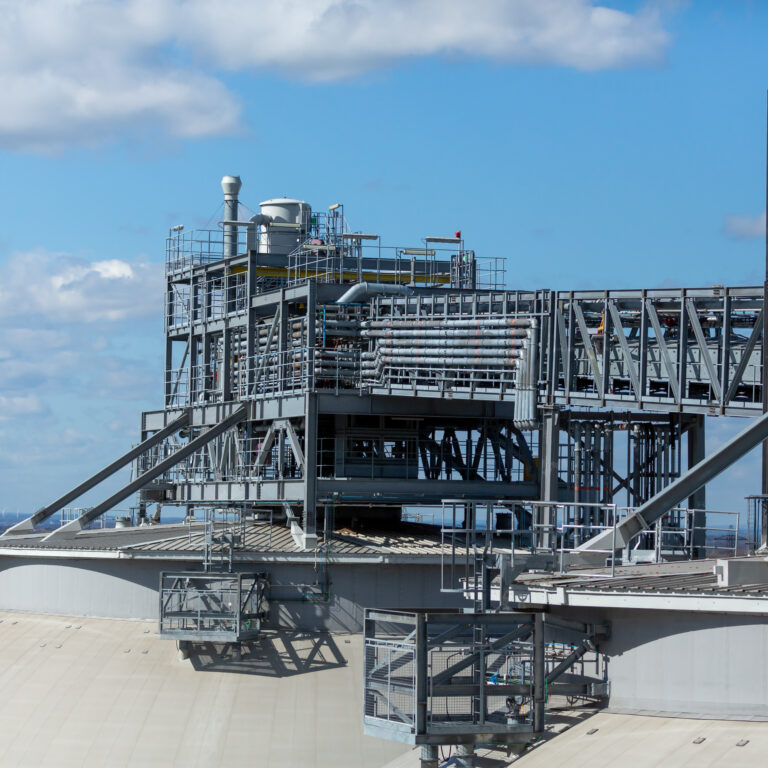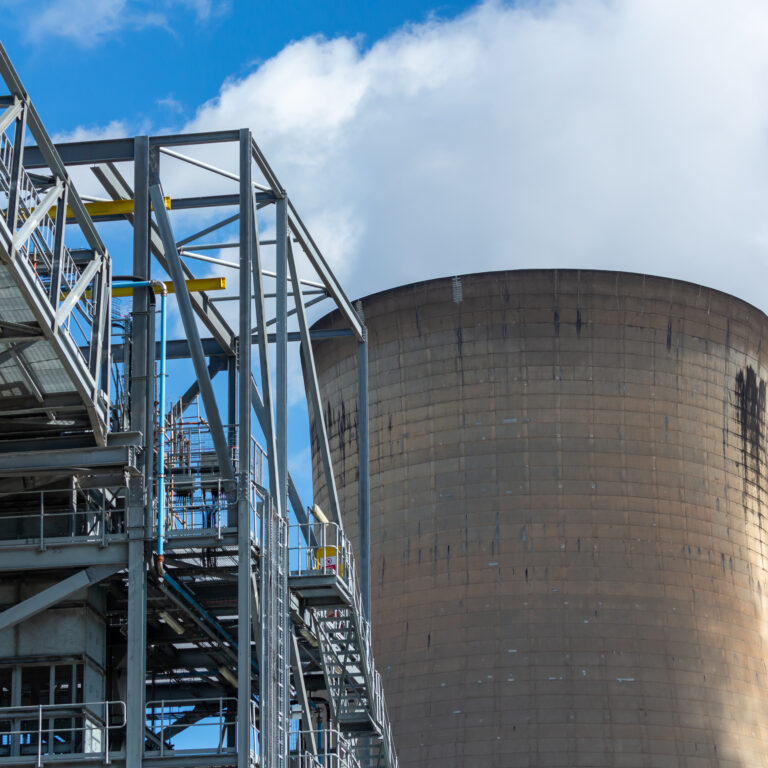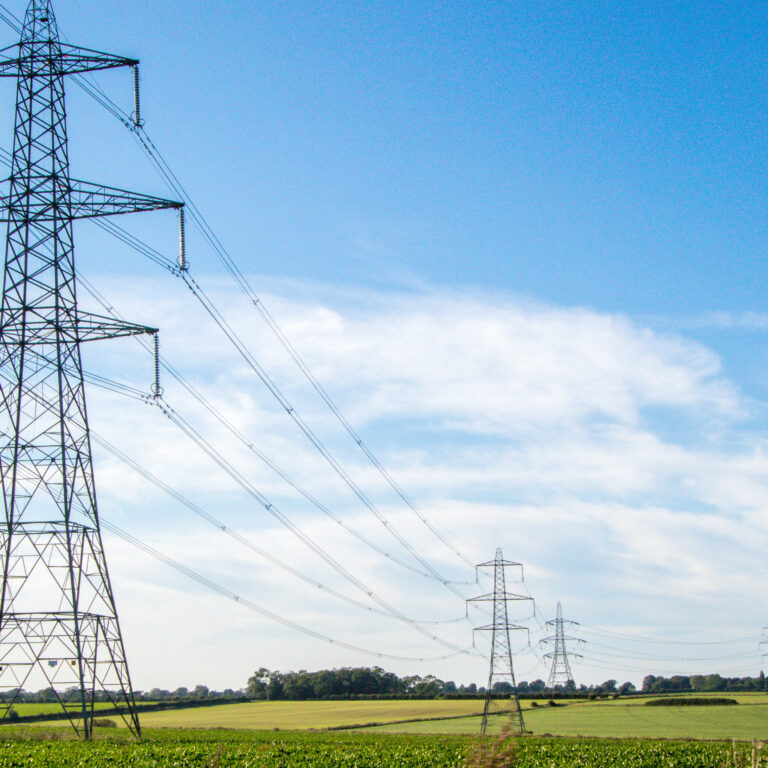RNS Number : 2686A
Drax Group plc
(“Drax” or the “Group”; Symbol:DRX)
Ambition for the development of over 20Mt of carbon removals – 14Mt pa by 2030
- New-build BECCS – two sites selected in US – targeting c.6Mt pa by 2030
- Evaluating nine additional sites in US for greenfield and brownfield BECCS
- Option for CCS on a pellet plant – targeting FID in 2024/25, commissioning in 2026
- Targeting 8Mt pa at Drax Power Station by 2030
- Establishing HQ for Global BECCS in Houston, Texas
Progress on Global BECCS commercial arrangements
- MoU with Respira for sale of up to 2Mt of Carbon Dioxide Removal (CDR) certificates
- Other MoUs agreed for sale of CDRs – c.$300/t on small volumes
- MoUs agreed with leading forestry and Transportation and Storage (T&S) companies
Attractive portfolio of investment opportunities
- £7bn of strategic growth opportunities between 2024 and 2030
- 14Mt pa of carbon removals from BECCS, pellet production and pumped storage hydro
- Targeting returns significantly in excess of the Group’s cost of capital
2023 outlook
- Expectations for Adjusted EBITDA(1) remain in line with analysts’ consensus estimates(2)
Drax Group CEO, Will Gardiner said:
Will Gardiner, Drax Group CEO
“The world’s leading climate scientists at the UN’s IPCC are clear – the planet cannot solve the climate crisis without the combination of reliable, renewable electricity and carbon removal technologies.
“Drax is a growing and sustainable, international business providing flexible, renewable energy and carbon removals solutions, via BECCS, which put us at the heart of global efforts to deliver net zero and energy security.
“Our plans to invest billions in critical renewable energy and carbon removal technologies will help to tackle the climate crisis and could create thousands of jobs whilst generating secure, renewable power. This investment is underpinned by our strong operational performance.”
Capital Markets Day
Drax is today hosting a Capital Markets Day for investors and analysts.
Will Gardiner and members of his leadership team will update on the Group’s strategy, market opportunities and development projects, including the progress Drax is making in the development of BECCS in North America and the opportunities this represents for the Group.
Purpose and ambition
The Group’s purpose is to enable a zero carbon, lower cost energy future and its ambition is to be a carbon negative company by 2030. The Group aims to realise its purpose and ambition through three strategic pillars, which are closely aligned with global energy policies that increasingly recognise the role that biomass can play in the fight against climate change.
The Group’s three strategic pillars remain (1) to be a global leader in carbon removals, (2) to be a global leader in sustainable biomass pellets, and (3) to be a UK leader in dispatchable, renewable generation.
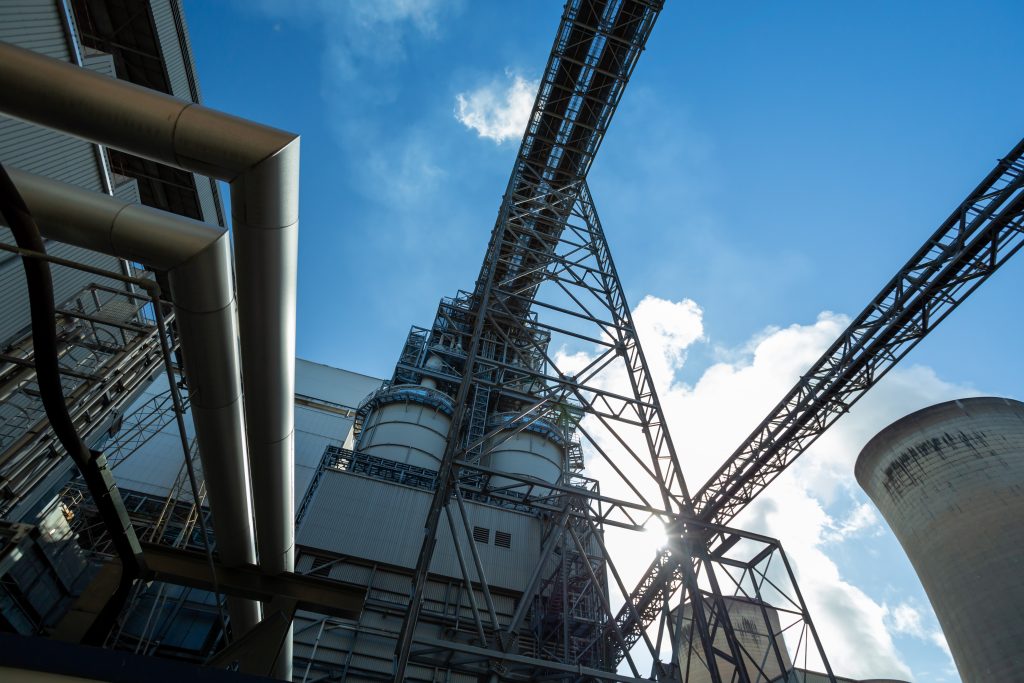
Global need for carbon removals
Research by the Intergovernmental Panel on Climate Change (IPCC)(3), the world’s leading authority on climate science, states that CDR methods, including BECCS, are needed to mitigate residual emissions and keep the world on a pathway to limit global warming to 1.5oC.
All of the illustrative mitigation pathways assessed in the IPCC’s latest report use significant volumes of carbon removals, including BECCS, as a key tool for mitigating climate change. The IPCC believes that globally up to 9.5 billion tonnes of CDRs via BECCS will be required per year by 2050.
In the USA, the supportive investment environment created by the Inflation Reduction Act is stimulating action and robust pricing for CDRs.
BECCS – North America
Over the past two years, Drax has been progressing a number of work streams to develop its options for BECCS, with a primary focus on North America.
Drax has continued to develop plans for a new-build BECCS power unit capable of producing c.2TWh of renewable electricity from sustainable biomass and capturing c.3Mt of carbon per year. Two initial sites in the US South have been selected and are progressing to option, although the precise details remain commercially sensitive. The two sites combined could enable the capture of c.6Mt of carbon per year by 2030.
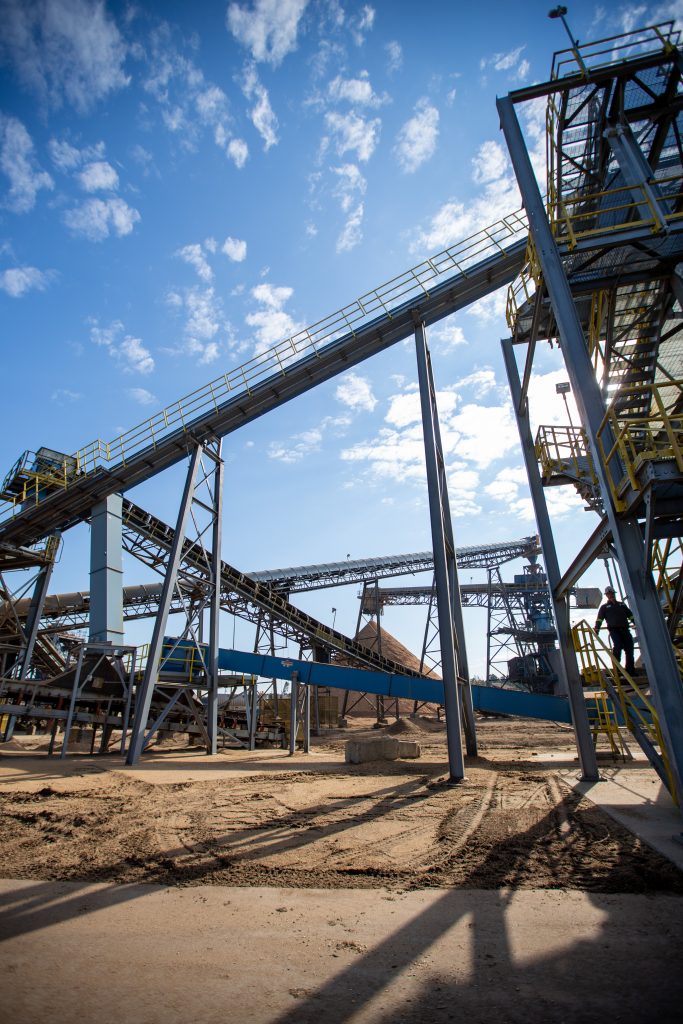 Total investment would be in the region of $2 billion per plant with a target FID in 2026 and commercial operation by 2030. The capital cost reflects the construction of new-build power generation as well as carbon capture and storage (CCS) systems.
Total investment would be in the region of $2 billion per plant with a target FID in 2026 and commercial operation by 2030. The capital cost reflects the construction of new-build power generation as well as carbon capture and storage (CCS) systems.
The design of new-build BECCS enables a wider choice of biomass materials, including non-pelletised material, such as woodchips. Drax aims to locate new plants in regions which are closer to sources of sustainable biomass and T&S systems to permanently store CO2. This is expected to significantly reduce the operating cost of new-build BECCS compared to retrofit, as well as carbon emissions in the supply chain.
The Group is continuing to evaluate nine further sites in North America, creating a pipeline of development opportunities into the 2030s.
Commercial arrangements
The commercial model for US BECCS includes Power Purchase Agreements, long-term CDR offtake agreements and a direct pay tax incentive under the Inflation Reduction Act of $85/tonne.
Drax believes that the role of high-quality, permanent removals, such as BECCS and Direct Air Capture, will grow significantly as governments and companies take action to address their own carbon footprints. In September 2022, Drax announced a Memorandum of Understanding (MoU) for one of the world’s biggest carbon removals deal with Respira, a carbon broker. Under the terms of the MoU, Respira will be able to purchase up to 2Mt of CDRs over a five-year period from Drax’s North American BECCS projects.
Drax has also agreed MoUs with C-Zero, a carbon broker, for the sale of CDRs at c.$300/tonne.
Resourcing
To support the development of its BECCS projects in North America, Drax has hired 80 employees across the US and Canada and is in the process of establishing a Global BECCS headquarters in Houston, Texas, which will provide access to the highly skilled workforce needed to support the growth of this part of the Group.
Other developments
In addition to new-build BECCS, Drax is currently developing an option for a project to add a carbon capture process to an existing pellet plant in Louisiana. The project would have the capacity to capture over 100k tonnes of CO2 per year from the pelleting process, providing an early demonstration of the technology and creating CDRs which can help to stimulate this nascent market. The project, which has a capital cost in the region of $150 million, is targeting FID in 2024/25 and commissioning in 2026.
The Group is also assessing options for BECCS on existing non-Drax assets and is continuing to screen other regions, including Europe and Australasia.
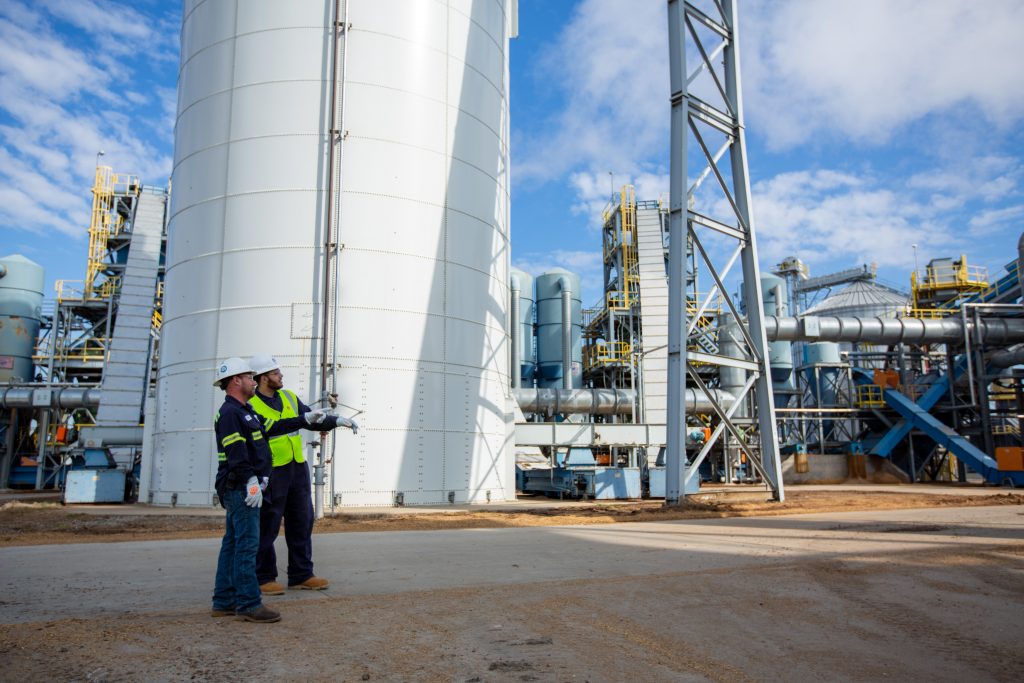
Capital allocation
The Group has previously outlined a fully funded plan to invest c.£3 billion in two BECCS units at Drax Power Station, pellet production and pumped storage hydro.
Today, the Group expands on this plan to include two new-build BECCS plants and CCS on a pellet plant, increasing the total potential investment to c.£7 billion between 2024 and 2030.
Any final investment decisions will be subject to the achievement of project milestones, including further progress on commercial arrangements as well as clarity on regulatory and funding mechanisms.
Reflecting strong expected cash generation from existing assets and new investments, Drax can fully fund the £7bn of opportunities and return to net debt to Adjusted EBITDA below 2x by the end of 2031. Drax will also continue to assess a wider range of funding options, including project finance.
The Group remains committed to its capital allocation policy, which was established in 2017, and has delivered average annual dividend per share growth of around 11%.
The Group has commenced a £150 million share buyback programme, which is expected to complete by the end of 2023. The programme is not expected to have any impact on the Group’s medium and long-term growth plans and, beyond the current buyback programme, will continue to assess its capital requirements in line with the current policy, including the return of excess capital to shareholders.
Outlook
The Group’s outlook for 2023, as set out in its recent Trading Update, remains unchanged and provides a strong platform for long-term investment and returns to shareholders.
Drax continues to expect full year Adjusted EBITDA(1) for 2023 to be in line with analysts’ consensus estimates(2), subject to continued good operational performance.
Webcast and presentation material
The event will be webcast from 2pm (UK) and the material made available on the Group’s website at that time. Joining instructions for the webcast and presentation are included in the links below.
https://secure.emincote.com/client/drax/drax025
https://www.drax.com/investors/announcements-events-reports/presentations/
Notes:
[1] Earnings before interest, tax, depreciation, amortisation, excluding the impact of exceptional items and certain remeasurements. Excludes the Electricity Generator Levy, which is currently presented as a tax and reflected in EPS.
[2] As of 18 May 2023, analyst consensus for 2023 Adjusted EBITDA was £1,162 million, with a range of £1,100 – 1,200 million. The details of this company collected consensus are displayed on the Group’s website. Excludes the Electricity Generator Levy, which is currently presented as a tax and reflected in EPS.
[3] IPCC Sixth Assessment Report, Working Group III (2022).
https://www.drax.com/wp-content/uploads/2023/05/Company-Collected-Consensus-May-2023.pdf
Enquiries:
Drax Investor Relations: Mark Strafford
+44 (0) 7730 763 949
Media:
Drax External Communications: Chris Mostyn
+44 (0) 7548 838 896





